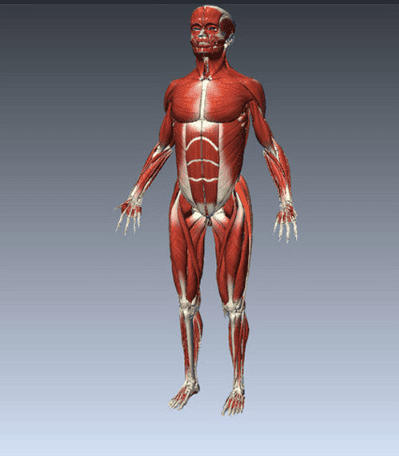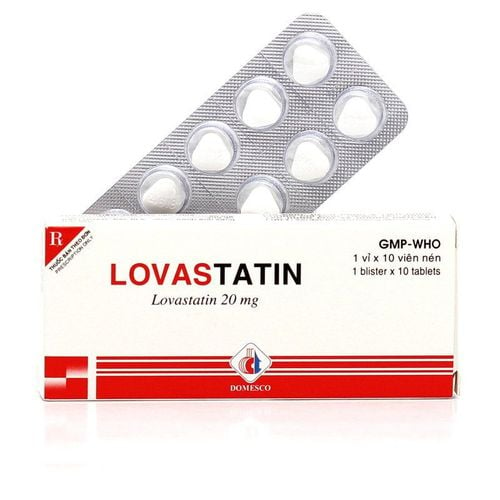This is an automatically translated article.
Intermittent fasting during the day is considered a diet. On this diet, you do intermittent fasting every day, but you can eat anything on the days you don't have to fast. Intermittent fasting is a very powerful weight loss tool and at the same time helps reduce the risk of heart disease and type 2 diabetes.1. How to do intermittent fasting during the day
Intermittent fasting (ADF) is an approach to intermittent fasting. Meaning you fast for one day and then you can eat whatever you want the next day. This way, you can limit the amount you eat, down to half. On fasting days, you are allowed to drink as many calorie-free beverages as you want. For example:
Water Coffee Unsweetened Tea If you are following a modified ADF method, you can add about 500 calories on fasting days, or about 20% - 25% of your energy needs. you need.
Health benefits and weight loss effects do not seem to make a significant difference whether you consume a certain number of calories at lunch or dinner, or split into smaller meals throughout the day when you do intermittent fasting.
Studies show that many people find daily intermittent fasting much easier than traditional daily calorie restriction.
Most of the research on intermittent fasting during the day is on a new approach, with consuming 500 calories on fasting days. This is considered much more sustainable than completely fasting on fasting days, the results are also very positive.
In this article, the terms intermittent fasting during the day, or ADF, generally apply to a method of fasting that still consumes about 500 calories on fasting days.

Bạn được phép uống cà phê vào ngày nhịn ăn trong chế độ ăn kiêng ADF
2. Intermittent fasting during the day: effective weight loss tool
Intermittent fasting during the day is a very effective weight loss tool. Studies show that in overweight and obese adults, ADF can lead to a 3%-8% decrease in body weight within 2-12 weeks. ADF is considered a particularly effective method for weight loss in middle-aged people.
Some studies also show that ADF and daily calorie restriction are equally effective in reducing belly fat in people with obesity.
However, a study conducted in 2016 came to the conclusion that the ADF method is more effective than a daily calorie-restricted diet because it reduces belly fat more and Preserve more muscle mass.
In addition, combining ADF and exercise can double the weight loss effect compared to doing the ADF method alone and increase it 6 times compared to exercise. With the ADF method, whether you follow a high-fat or low-fat diet, the effect is the same.

Nhịn ăn gián đoạn trong ngày hiệu quả trong việc giảm cân
3. Health Benefits of Intermittent Fasting During the Day
In addition to weight loss, ADF also offers certain health benefits, including:
Type 2 diabetes: accounts for 90-95% of diabetes cases in the United States. Additionally, more than one-third of Americans have prediabetes, a condition in which blood sugar levels are higher than normal but not high enough to be considered diabetes. Losing weight and limiting calorie consumption is often an effective way to improve or reverse many of the symptoms of type 2 diabetes. Similar to restricting certain calorie intake, doing intermittent fasting during It also reduces the impact of risk factors for type 2 diabetes in overweight or obese people. However, the best effect when you do ADF is the reduction of insulin levels and insulin resistance, while the effect on blood sugar control is quite limited.
High insulin levels or hyperinsulinemia have been linked to obesity and some chronic diseases, such as heart disease and cancer.
Among people with prediabetes, fasting insulin levels decreased by about 20-31% after 8 to 12 weeks of using the ADF method.
A decrease in insulin levels and insulin resistance will lead to a significant reduction in the risk of type 2 diabetes.

Nhịn ăn gián đoạn có tác dụng ngăn ngừa bệnh tiểu đường type 2:
Heart Health : Heart disease is the leading cause of death worldwide. Many studies have shown that ADF is a good choice for helping people who are overweight or obese lose weight and reduce their risk factors for heart disease. Applying ADF for 8 to 12 weeks will bring some of the following health benefits:
Reduce waist circumference Reduce blood pressure Reduce LDL cholesterol Increase the number of large LDL particles and reduce the number of small LDL particles Reduce blood triglycerides ( up to 30%) Anti-aging, preventing cancer: One of the most common effects of fasting is to stimulate the process of self-eating, also known as the autophagy mechanism. This is the process of removing unwanted components of the cell. This process plays an important role in the prevention of diseases, including cancer, neurodegeneration, and cardiovascular diseases. Animal studies have shown that long-term and short-term fasting increases self-feeding and is associated with slower aging and a reduced risk of tumors.
Furthermore, fasting has been shown to increase lifespan in rodents, flies, yeasts, and worms.
Cellular studies have shown that fasting helps fight aging, helps you stay healthy and live longer.
The ADF diet's impact on hunger is inconsistent: Some studies show that hunger subsides as you get used to fasting, while others still see no change. change. However, studies agree that following the ADF diet and consuming 500 calories on fasting days can help you tolerate more hunger than fasting completely on ADF days. .
A study comparing ADF with calorie restriction found that ADF caused more favorable changes in leptin saturation and hunger hormone (ghrelin).
Likewise, animal studies have shown that ADF leads to a decrease in hunger hormone levels and an increase in satiety hormone levels more than other diets.
Preservation of muscle mass: Studies comparing traditional calorie-restricted diets and ADFs show that ADF is equally effective in reducing weight and fat mass. However, ADF seems to be more effective at preserving muscle mass. This is really important, because losing muscle mass along with fat will decrease the number of calories your body burns on a daily basis.
The ADF diet is not only beneficial for weight loss - it may also provide certain health benefits for people who are not obese.
A 3-week study analyzed average-weight people who followed a strict ADF diet with zero calories on fasting days.
Researchers found that performing ADF resulted in increased fat burning, decreased fasting insulin, and a 4% reduction in fat mass. However, hunger levels remained quite high throughout the study.
Experts suggest that the ADF diet should be followed by a small meal on fasting days for people who are not obese.
Another related study was also done with people of average weight. Following the ADF diet for 12 weeks reduced fat mass and produced favorable changes in heart disease risk factors.
The ADF diet usually provides far fewer calories than you need to maintain weight, so it is considered the most effective tool for weight loss.
If you do not want to lose weight or lose fat, or are of average weight, other dietary methods may be more suitable for you.

Chế độ ăn kiêng ADF dường như hiệu quả hơn trong việc bảo tồn khối lượng cơ bắp
4. What to eat on fasting days?
There are no general rules about what you should eat or drink on your fasting days, except that the total amount of calories you consume should not exceed 500.It is best to choose drinks that are low or no calories. , such as:
Water Coffee Tea Most people often eat their main meal at the end of the day, while others prefer to eat it earlier or divide it into 3 meals.
Because of restricting the consumption of a certain number of calories, it is best to focus on adding nutritious, high-protein foods as well as low-calorie vegetables. These foods will help you feel full without consuming a lot of calories.
Soups are also considered a good choice on fasting days, as they tend to make you feel fuller than if you eat the ingredients alone.
Here are a few examples of suitable meals for your fasting days:
Eggs and vegetables Yogurt with berries Grilled fish or lean meat with vegetables Soups and some fruit Salad with lean meat

Sữa chua với quả mọng là một bữa ăn phù hợp cho những ngày bạn nhịn ăn
5. Is Intermittent Fasting Safe?
Studies have shown that intermittent fasting during the day is a safe dietary method for most people.
ADF does not lead to a greater risk of weight regain than traditional diets, such as calorie restriction. In contrast, the long-term weight loss effects may be better than continuous calorie restriction.
ADF also improves eating and offers certain benefits for people with obesity.
Some people should not follow any weight loss diet, including children, pregnant and lactating women, people with eating disorders, underweight or certain medical conditions.
Please dial HOTLINE for more information or register for an appointment HERE. Download MyVinmec app to make appointments faster and to manage your bookings easily.
Article referenced source: healthline.com












